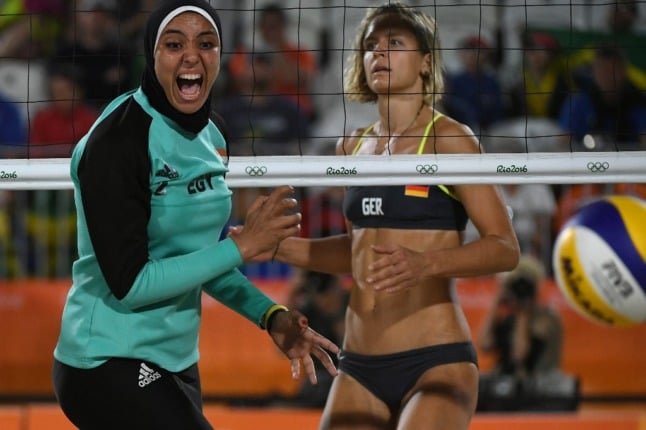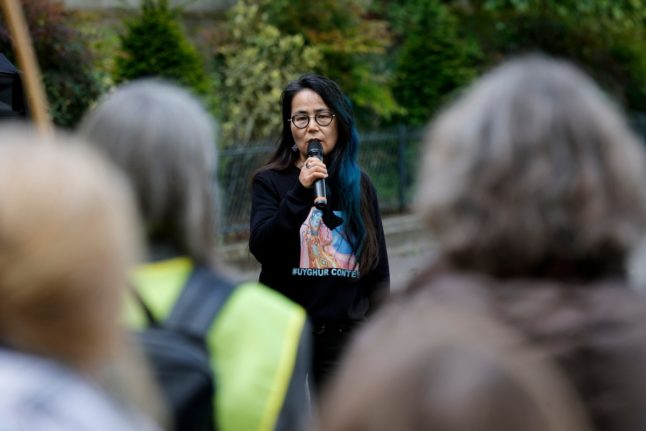Wednesday’s event – a game of football on the esplanade des Invalides, next to the Palais Bourbon which houses the National Assembly – was planned by Les Hijabeuses, a group of Muslim women, to protest against an amendment to a sports bill making its way through Parliament that would prohibit the wearing of conspicuous religious symbols while participating in sporting events.
La prefecture suspend les Hijabeuses !
Une fois de plus, on empêche les femmes de jouer.. on vous explique tout en détails. #LetUsPlay #LaissezNousJouer #Footballpourtoutes #SportPourToutes pic.twitter.com/mlqOxDiu0L— Les Hijabeuses (@leshijabeuses) February 8, 2022
The match was timed to coincide with the bill – on the democratisation of sport – returning to the Assembly after the contentious amendment was added in the Senate at an earlier reading.
READ ALSO OPINION: Muslim headscarves are legal in France, so why the moral panic about a sports hijab?
“It is feared that this demonstration will attract, in addition to those who support it, people hostile to the cause,” the Préfecture de Police said in a statement published on Twitter.
Le préfet de Police prend un arrêté d'interdiction d'une manifestation susceptible de créer des troubles à l'ordre public.
🔵 Consultez notre communiqué de presse ⤵️ pic.twitter.com/z5f2ESrzv1— Préfecture de Police (@prefpolice) February 8, 2022
The ban on the rally was justified, “both for the safety of the demonstrators themselves and for the maintenance of public order,” it added.
The group is, however, not giving up without a fight. “We have obviously taken the case to court to challenge this arbitrary, unfair and completely disproportionate, act” said the collective on Twitter after the announcement by the Prefecture of Police.
READ ALSO ‘My body, my choice’ – French Muslim women speak out about headscarves
“A hearing will take place tomorrow morning, and we hope that the Prefecture will be brought to reconsider this ban. On our side, we will play whatever happens. Surely elsewhere … but we will play,” said the collective on the social network.
— Les Hijabeuses (@leshijabeuses) February 8, 2022
Les Hijabeuses staged a similar demonstration in front of the Senate last week. They were moved on by gendarmes.
A week previously, senators had added an amendment prohibiting the wearing of “conspicuous religious symbols” during a sports competition, which is not supported by the government and was promptly removed by MPs in the parliament.
The bill is due before the Assembly again on Wednesday, before its final readings on February 16th.
The French Football Federation still prohibits the wearing of the headscarf within its championships, despite the fact that Fifa authorised it in 2014.
Due to France’s laws of laïcité (secularism) conspicuous religious garments such as the hijab are banned in government buildings such as schools or local government officers, while public servants such as police officers are banned from wearing them while on duty.
The full-face veil is banned in all public spaces in France.
READ ALSO What does laïcité really mean in France?



 Please whitelist us to continue reading.
Please whitelist us to continue reading.
Member comments